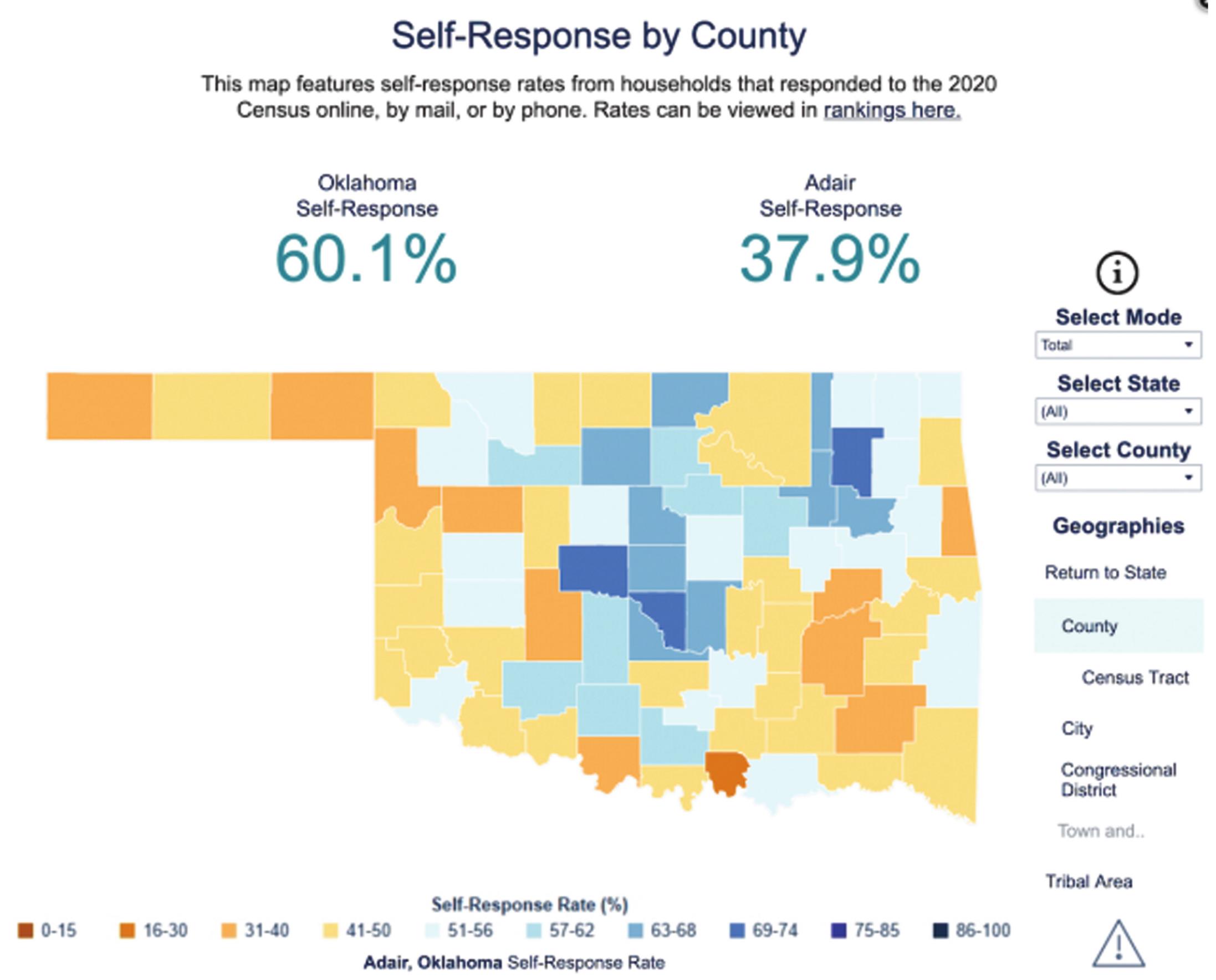WASHINGTON — Oklahoma may have been prevented from missing thousands of immigrants in the 2020 census when a federal judge temporarily stopped the Trump administration from ending the census early, according to civil rights groups.
The United States Census Bureau had set an October 31 deadline for ending the count, but suddenly moved it up to September 30.
The census counting started April 1, but the Trump administration has tried repeatedly to find ways to exclude undocumented residents from the count, which critics say would undermine reapportionment of legislative districts and funding formulas for federal aid to the states.
In Oklahoma, undocumented workers made up an estimated 3 percent of the workforce in 2016, according to the American Immigration Council. But their fear of the federal government has made them harder to reach by census workers, Jose Rubio, deputy executive director of Dream Action Oklahoma, said, an immigrant advocacy group.
“We feel the worry or stress from people in the undocumented community that have to fill out the census,” Rubio said. “And yes, the reassurance is supposed to be that they won’t share this information with anybody and it won’t ever be shared with any kind of immigration or any law enforcement agencies. But there’s always that risk either way.”
Added to that fear, he said, is the coronavirus, which has made it harder to find people to get them to fill out census forms.
However, Dream Action Oklahoma used textmessaging apps such as Hustle to reach politicallyactive young immigrants in “hard-to-count” communities and convince them to respond online to the census.
“While it might be harder to reach their parents, uncles and aunts, the youth are more willing,” Rubio said. “They understand how the census helps and why it’s so important.”
In 2019, President Donald Trump announced plans to add a citizenship question to the 2020 census, but the U.S. Supreme Court blocked it.
A coalition of civil rights groups sued the U.S. Census Bureau in August, and a temporary restraining order will remain in place until September 17, when a court hearing could decide if the headcount will extend to Halloween as originally planned.
“There was just no explanation given to rush the census to a close,” Thomas Wolf, senior counsel for the Brennan Center for Justice, a legal organization representing the civil rights coalition, said.
The lawsuit, which brought about the temporary restraining order, claims that the president is fasttracking the census so undocumented immigrant communities can be subtracted while he is still in office.
“Instead of releasing the numbers for Congress at the end of April 2021, [the census bureau] were going to release them at the end of December 2020,” Wolf said. “They were compacting eight-and-a-half months of work into about four-and-a-half months, with no explanation given.”
September 10, a panel of federal judges ruled that Trump’s directive to exclude undocumented immigrants from the census was unlawful.
That same day, Oklahoma was registering a 59- percent self-response rate to the census, compared to the final 62 percent self-response rate for Oklahoma in the 2010 census, according to the government’s 2020 census website.
Tribes also a focus
Oklahoma’s Native Americans have historically been underrepresented in the census count.
“One of the reasons [native tribes] didn’t get a good count last time is if you put you’re Native American Indian [on the online census], then you have to click down a drop-down box and type in your tribe,” Lisa Greenlee, a member of Oklahoma’s Complete Count Committee, the group appointed by Gov. Kevin Stitt in 2019 to work on the census, said.
If a tribe member doesn’t list the same name their tribe is recognized as at a national level, it would not count.This year, the tribes have worked to ensure that does not happen again and should see an improvement in their numbers, Greenlee said.
(Editor’s note: Gaylord News reporter Bennett Brinkman contributed to this report.)



